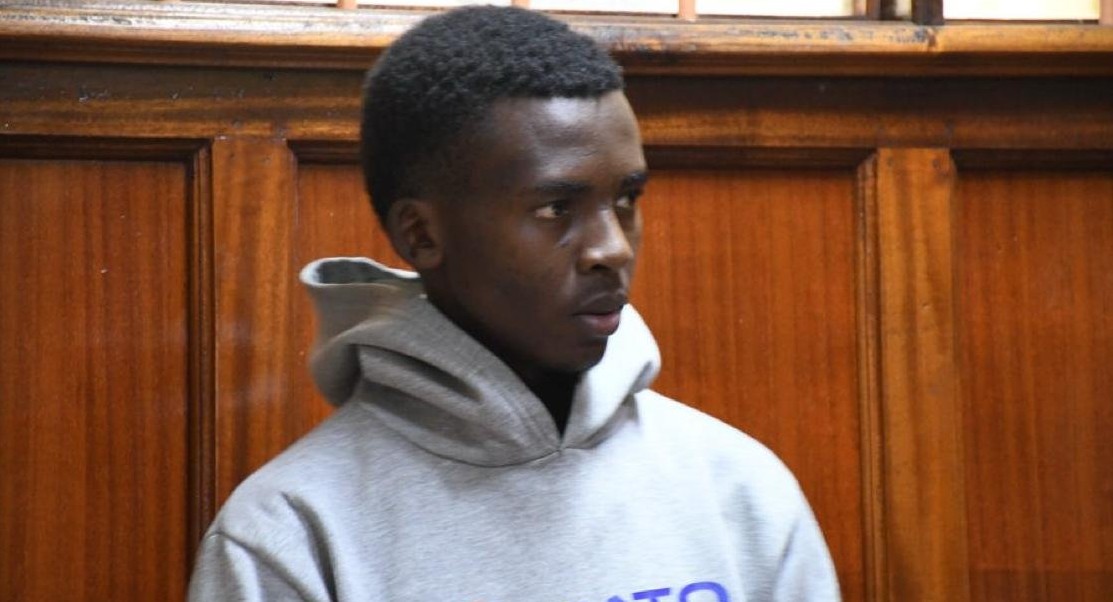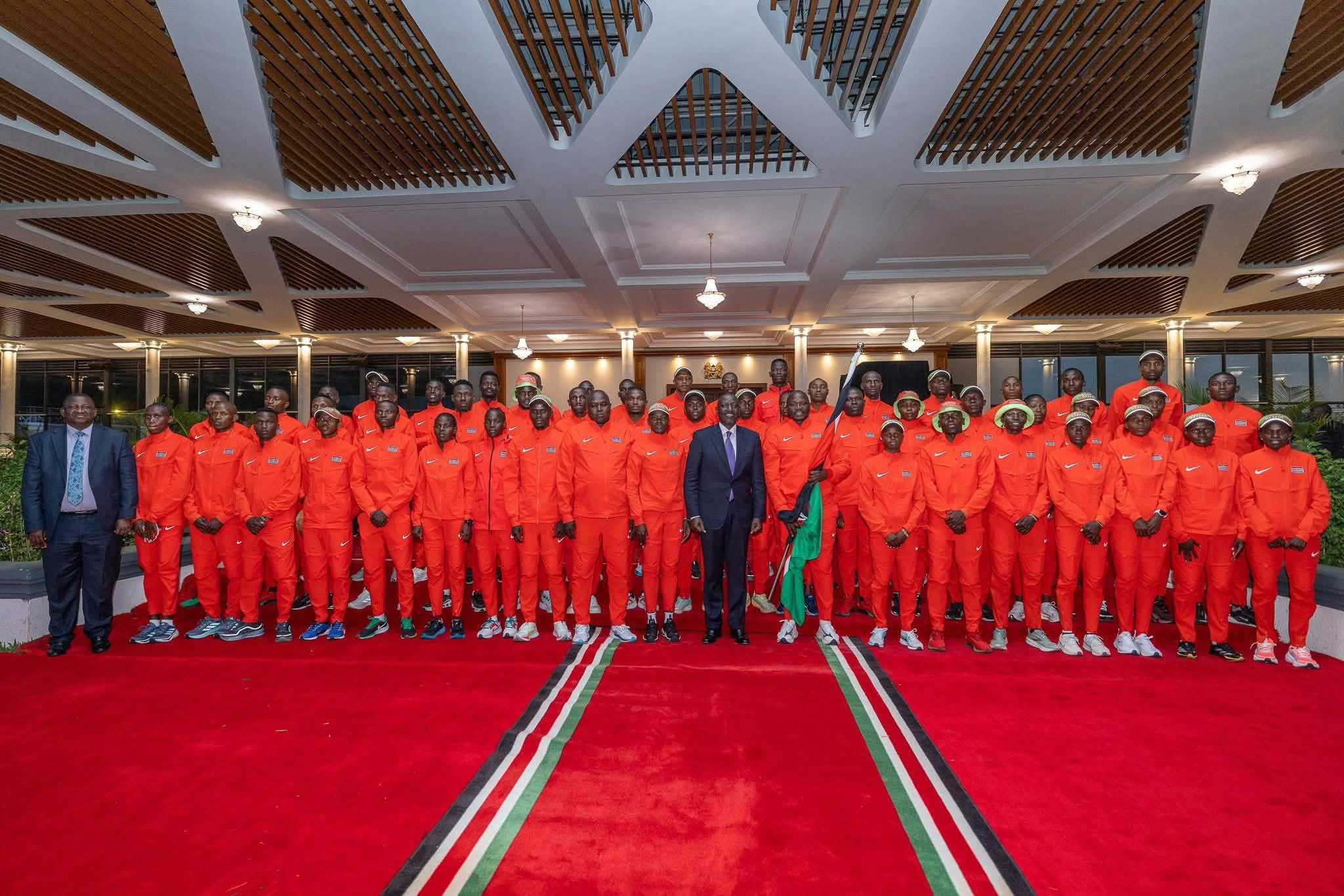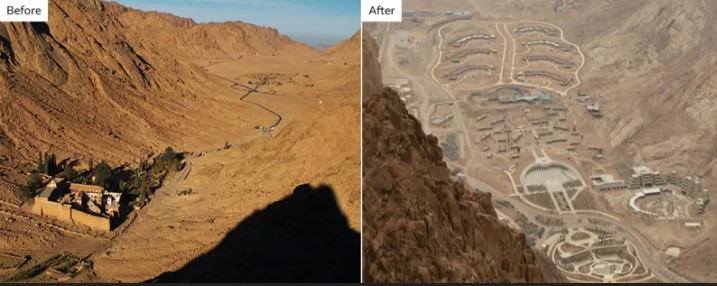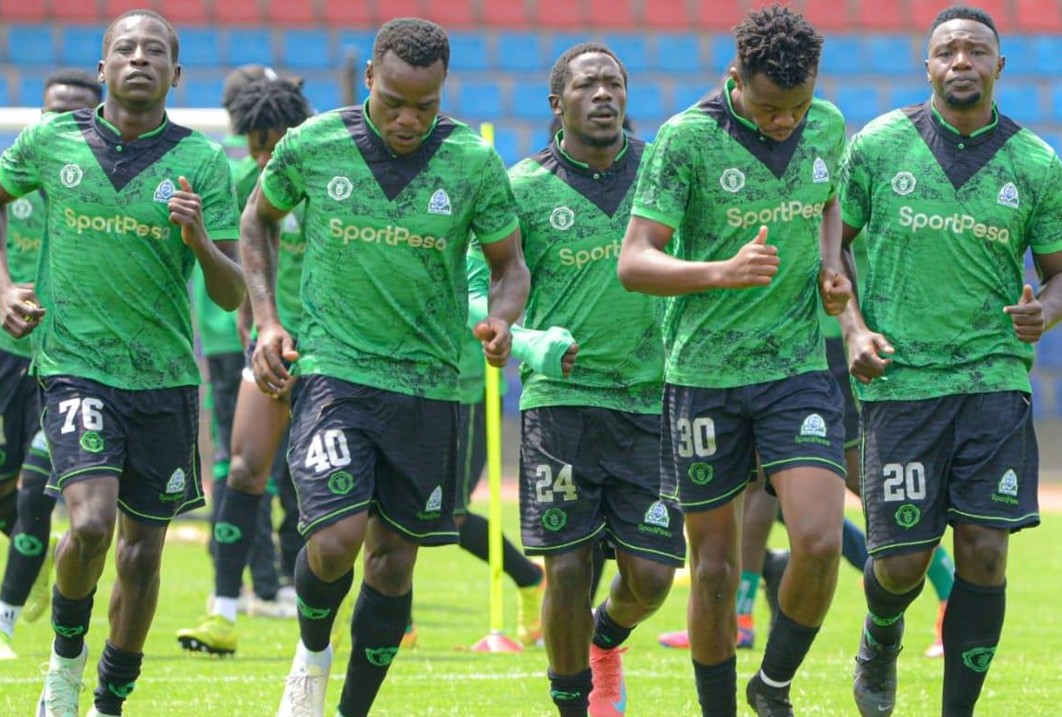From fruit vendors to matatu drivers: Meet the people keeping Eastleigh alive
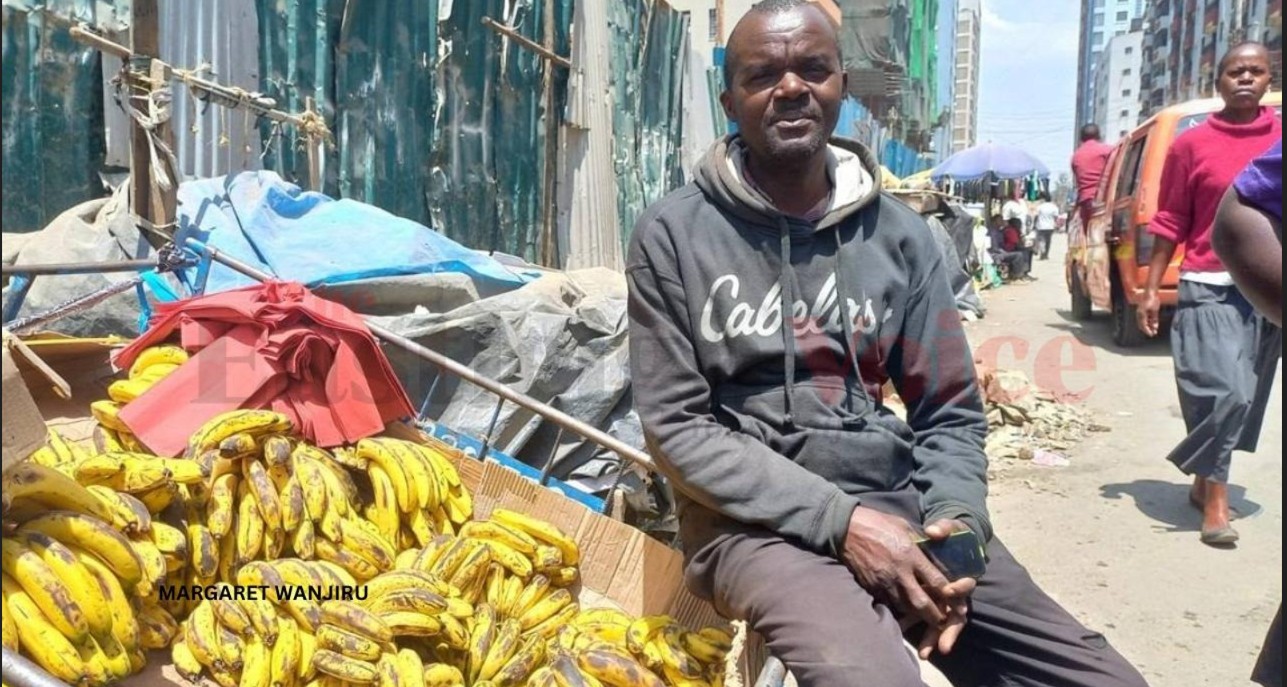
Eastleigh is more than just a business hub; it’s a vibrant, living organism where grit, sacrifice, and unshakable dreams drive the lives of everyone from street vendors to traders, matatu drivers, and shop owners, keeping the city’s heartbeat alive.
“If I told you to stand by the road, every passerby has to give you just two shillings, how much do you think you'd have by the end of the day?” David Muli Mbulu asks, his eyes bright with conviction.
I pause. “A lot,” I answer.
More To Read
- Why Eastleigh is Nairobi’s economic powerhouse: Stories of hustle, culture and community
- Eastleigh booms as East Africa’s borderless marketplace, drawing diverse traders and entrepreneurs
- COFICAF Café: Hidden gem inside Eastleigh's BBS Mall that everyone is talking about
- How Eastleigh’s BBS Mall, region’s largest shopping complex, attracts crowds with ‘Mini-Dubai’ vibe
- Eastleigh’s BBS Mall to stay open until 2am during Ramadan, plans 24-hour operations in final days
- Raila Odinga visits Eastleigh’s BBS Mall, hails its economic impact
He smiles.
“You might even walk away with two thousand shillings before midday here. People see it as small, but small money can make big money. You just have to respect the hustle.”
That is the spirit running through the bustling arteries of Eastleigh, a district in Nairobi that is as complex as it is alive — where opportunity and struggle stand side by side.
Beyond its rising towers, forex bureaus, and maze-like markets lies its true foundation: the people who keep it moving but are often overlooked.
From fruit vendors and matatu drivers to spice merchants and electronics traders, their stories reveal beginnings, struggles, and hopes for the future.
David Muli Mbulu: Fruit seller, motorist, father of seven
Muli has been part of Eastleigh since 2009. He is more than just another vendor — a banana seller, a boda boda rider, once a photographer, and always a father.
He sits on a weathered stone, his makeshift stool, beside a hired mkokoteni stacked with ripe bananas.
Renting the cart costs him Sh100 each morning. It’s more than a tool; it’s his moving shop, his symbol of persistence. Every banana sold keeps not just the cart moving, but the life he has built from sweat, prayer, and sacrifice.
Behind that humble cart are seven mouths to feed, school fees to pay, and dreams still in pursuit.
“This is part-time now,” he says, gesturing at the fruit. “I enjoy it, but I also ride boda boda from time to time. I do what I must to feed my family. I have seven children, and two are about to go to college.”
A city within a city
Muli came to Eastleigh seeking better opportunities.
“I’ve been to many parts of this city, but my heart, and more importantly, my brain, settled here,” he says with a half-smile.
“I wanted more for myself and for my kids. Life wasn’t easy, and it still isn’t, but here, even with all its challenges, I found a way to survive.”
To him, Eastleigh feels like its own country — not just in looks, but in how it operates.
“The culture, the pace, even the language, it takes time to adjust,” he explains. “But the money is here. You don’t follow your heart in Eastleigh, you use your brain. And you don’t take things personally. If you do, you won’t last. You just keep pushing.”
Prayer grounds his day. “I might not be Muslim, but prayer is how I ground myself. The streets are tough.”
On the ground
His days start early on Timboroa Street, sometimes selling fruit, other times riding his motorbike. He’s seen the worst: hostile customers, harassment from city council officers (kanjo), and navigating narrow, congested streets.
“Sometimes these streets, even though they feed vendors here, can be a nightmare,” he chuckles. “Sometimes I can’t even push my cart through the crowd. And the sewer system, you’ve seen it, it’s broken, and it is worse when it rains, and we traders also add to the problem.”
What keeps him going is loyalty.
“What I enjoy the most is when customers come back. That means I’m doing something right. Even if they buy just five shillings worth of bananas, they trust me.”
Still, not everyone respects the hustle.
“A man once ate three bananas and refused to pay. Said they were too expensive… but that man became so rude and walked away. Another customer felt pity and paid instead.”
Muli shrugs. “You develop a hard heart here. If you don’t, Eastleigh will break you.”
Dreams bigger than the stall
Muli hopes for formal, dignified spaces for hawkers.
“If Hon. Yusuf Hassan (Kamukunji MP) and our government could build a designated market for us, even a simple one, it would change our lives,” he says, pointing toward an empty patch of land near Yare Towers and BBS Mall.
“The government promised to build us a proper market… but we’re still waiting to see even the foundation laid.”
For him, that dusty field is more than land — it’s a symbol of what could be: a place without fear of eviction, where dignity could replace uncertainty.
“I want my kids to study. Maybe one day I’ll become a big supplier. But for now, I push, with the little I can.”
Sadiq Farah: The electronics trader with a vision
In a place where phones are lifelines, Sadiq’s shop, Gurrey Electronics in Yare Towers, keeps Eastleigh connected. Chargers, phones, screen protectors — his goods keep the city’s pulse steady.
“This place helped me grow,” he says. “Not just in business, but as a person. I’ve learned how to survive, how to speak to people, how to trust myself.”
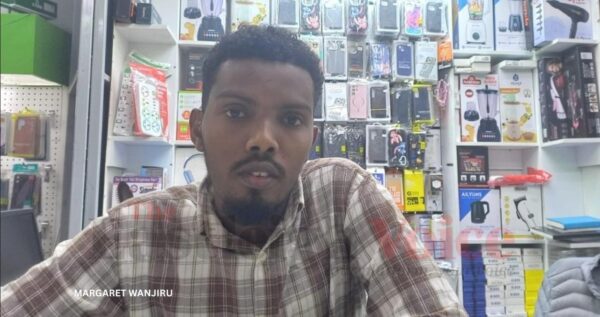 Sadiq Farah who sells electronics at a shop situated at Yare Towers in Eastleigh. (Photo: Margaret Wanjiru)
Sadiq Farah who sells electronics at a shop situated at Yare Towers in Eastleigh. (Photo: Margaret Wanjiru)
His mornings are calm, but “after midday, boom. Eastleigh wakes up, and the noise, the crowds, the energy — you can almost feel it in your chest.”
While others see congestion, he sees momentum. “Eastleigh is growing, fast… In five years, this place will be unrecognisable.”
Kelvin Karanja: The matatu driver with a love for Eastleigh
I met Kelvin on a matatu bound for Eastleigh’s Section 3. For six of his ten years as a driver, this has been his route.
“I love this route… If you treat people well, they’ll treat you the same.”
Kelvin lives in Eastleigh, shops here, and knows every turn. “I’ve grown with this place,” he says. His goal? “One day, I want to own my own matatu. That’s the goal. To be my own boss.”
Ikrah Hassan: The spice seller’s sense of smell
On Kipande Athumani Street, Ikrah’s spice shop is alive with the scent of turmeric, cloves, and cumin.
“Every smell reminds me of home,” she says. “They say, ‘this smells like my grandmother’s cooking’, and that keeps me going.”
The biggest challenge, she says, is infrastructure: “The roads are too narrow… when it rains, sometimes the dirt and sewerage enter our stalls.”
Still, she sees change coming fast. “In five years? This place will be unrecognisable.”
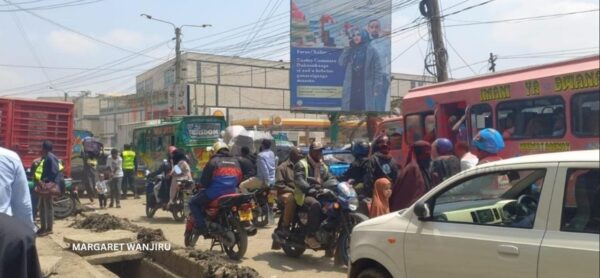 Motorists and boda boda riders stuck in traffic along General Waruinge Street in Eastleigh. (Photo: Margaret Wanjiru)
Motorists and boda boda riders stuck in traffic along General Waruinge Street in Eastleigh. (Photo: Margaret Wanjiru)
The invisible threads of community
Different trades, same resilience. They face broken infrastructure, kanjo harassment, and economic instability, yet keep going.
Muli sums it up: “Don’t chase only the big jobs. Even small work, if done right, can feed a family, pay school fees, and build a life. There is no shame in that.”
If Eastleigh were a person? “Reserved, but powerful… it speaks through the people who hustle here every day.”
For Muli, the lesson is clear: “Patience, perseverance, and focus… That’s how I’ve survived. Sixteen years and counting.”
Eastleigh is more than a business hub — it’s a living organism powered by grit, sacrifice, and unshakable dreams.
Top Stories Today

